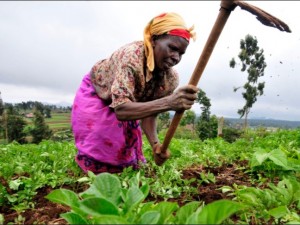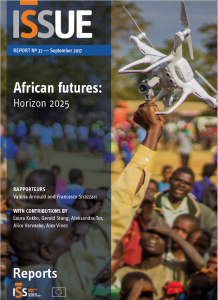African futures: Horizon 2025
By Valérie Arnould and Francesco Strazzari (ISS)
A recent report published by the Institute for Security Studies analyses the current status of the African continent as a predictor of its future as well as the factors that are likely to challenge or shape the continent’s economic, political, and security realms. By looking at Africa through different lenses, the authors agree that “if Sub-Saharan Africa’s future had to be encapsulated in a single word, it would be transformation” and that “a single African future does not exist.” The detailed report provides insight for current issues and challenges, as well as providing a common ground for policy-makers, particularly the State, to take the necessary steps for a strong, stable, and sustainable African future.
The sections covered in the report and taken into consideration for the understanding of Africa’s factors that are paving its future are:
- The disappearance of long-lasting rulers
- The expanding youth bulge
- Resource depletion and land pressures
- Diverging patterns of growth and inequality
- A multi-layered security environment
- Religious extremism as a vector of violent mobilization.
From these, the authors discern that some of the major challenges for Africa’s transformations are their resilience to global economic uncertainty and climate change pressures and their integration into the global economy in a productive rather than extractive manner.
The disappearance of long-lasting rulers in Africa might result in political changes, but there is also the concern of that transitions might be turbulent and not necessarily as democratic as needed. On the other hand, with more than half of the African population being under 24 years old, there is both the potential for strong sources of labor while at the same time concerns over unemployment for the lack of skills to specific markets. Climate change is a real challenge around the world, but particularly Africa, which is a resource-rich continent, and needs to take into account the changing structures and decide whether to prioritize fast-growing economies over sustainability. Similarly, security concerns over violent conflicts in the continent and the prevention of religious extremism will depend on several factors which encompass strategic management and policies.
The authors conclude with that the African continent cannot be put into a bundle and analyzed as a unity, but instead the different gains, challenges, and issues need to be contextualized and understood from the different countries’ perspectives. They also agree on that there will be economic, socio-political and security transformations, but their direction may swing either way depending on the various factors. Thus, there is an emphasis on the importance of regional cooperation and, the authors main takeaway is that the governance capacity unfolding in the continent is essential for Africa’s transformation and future.
Read more here:





